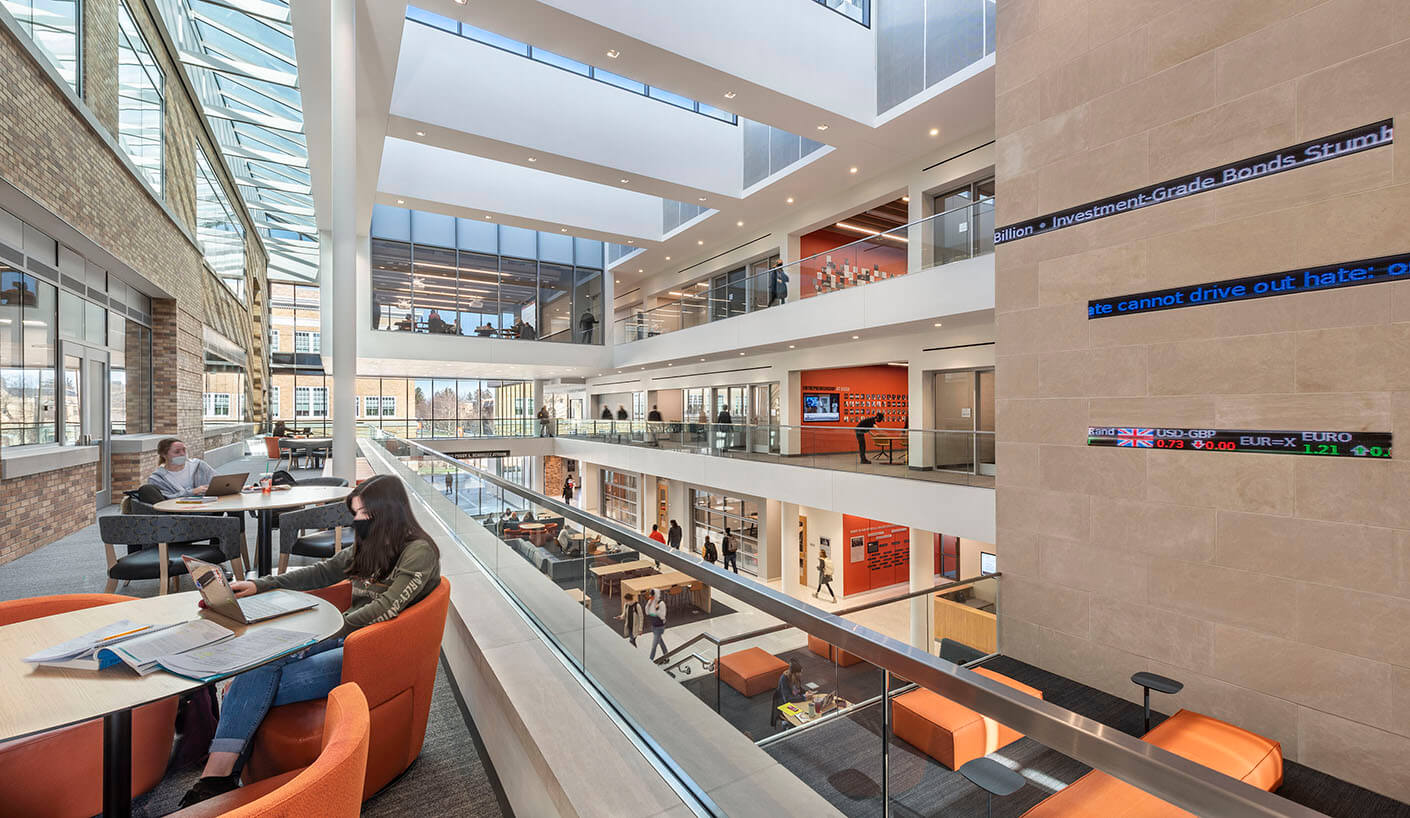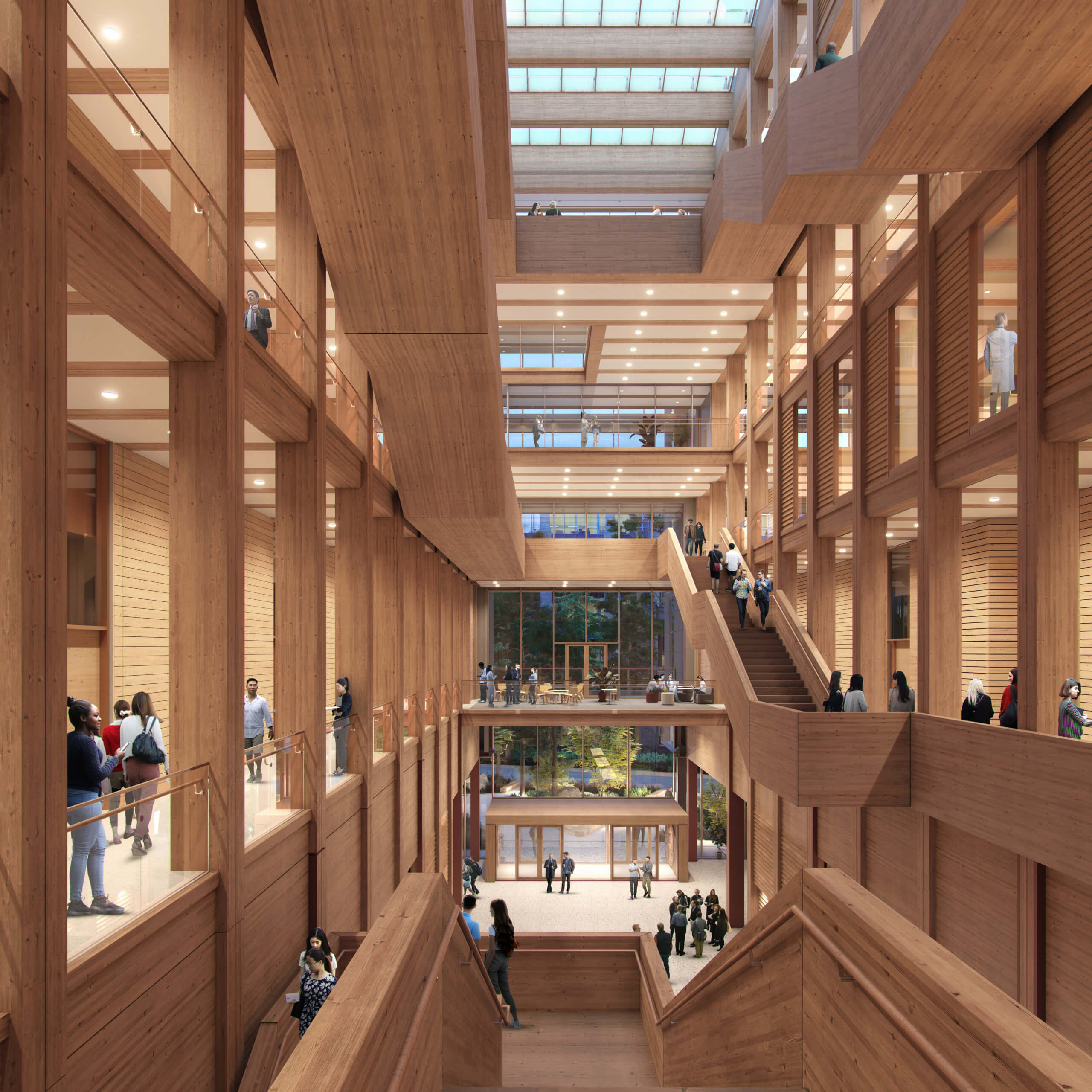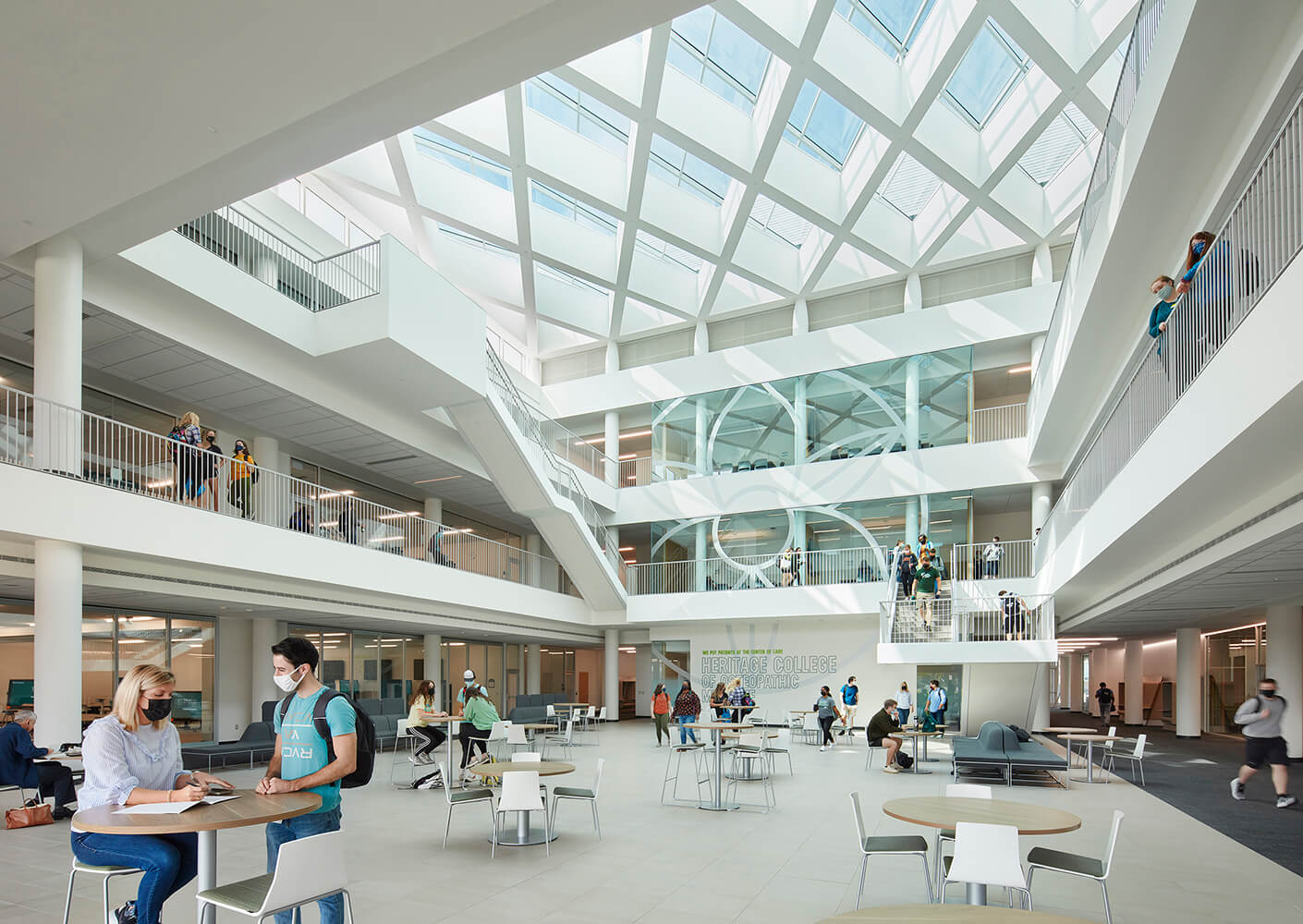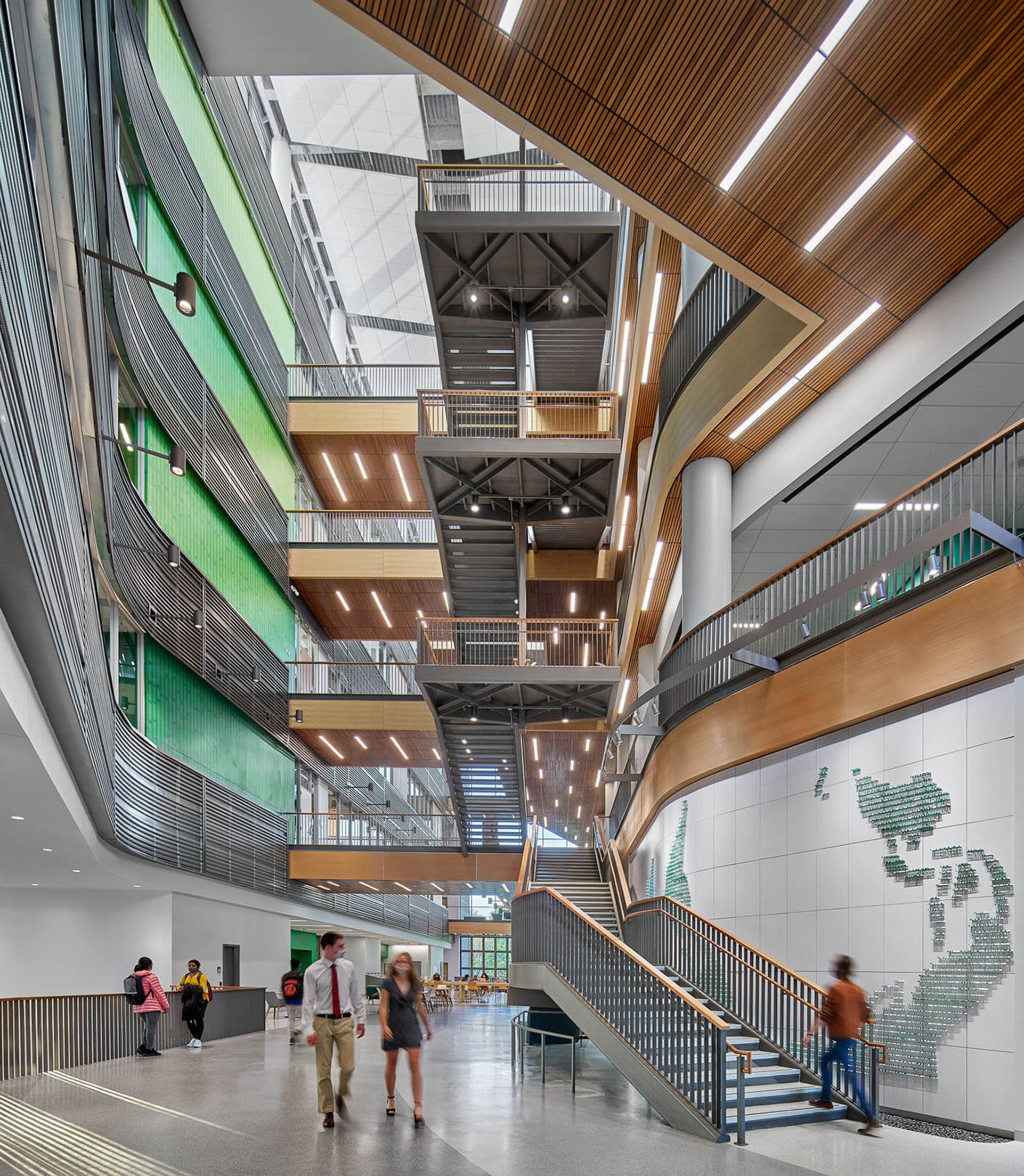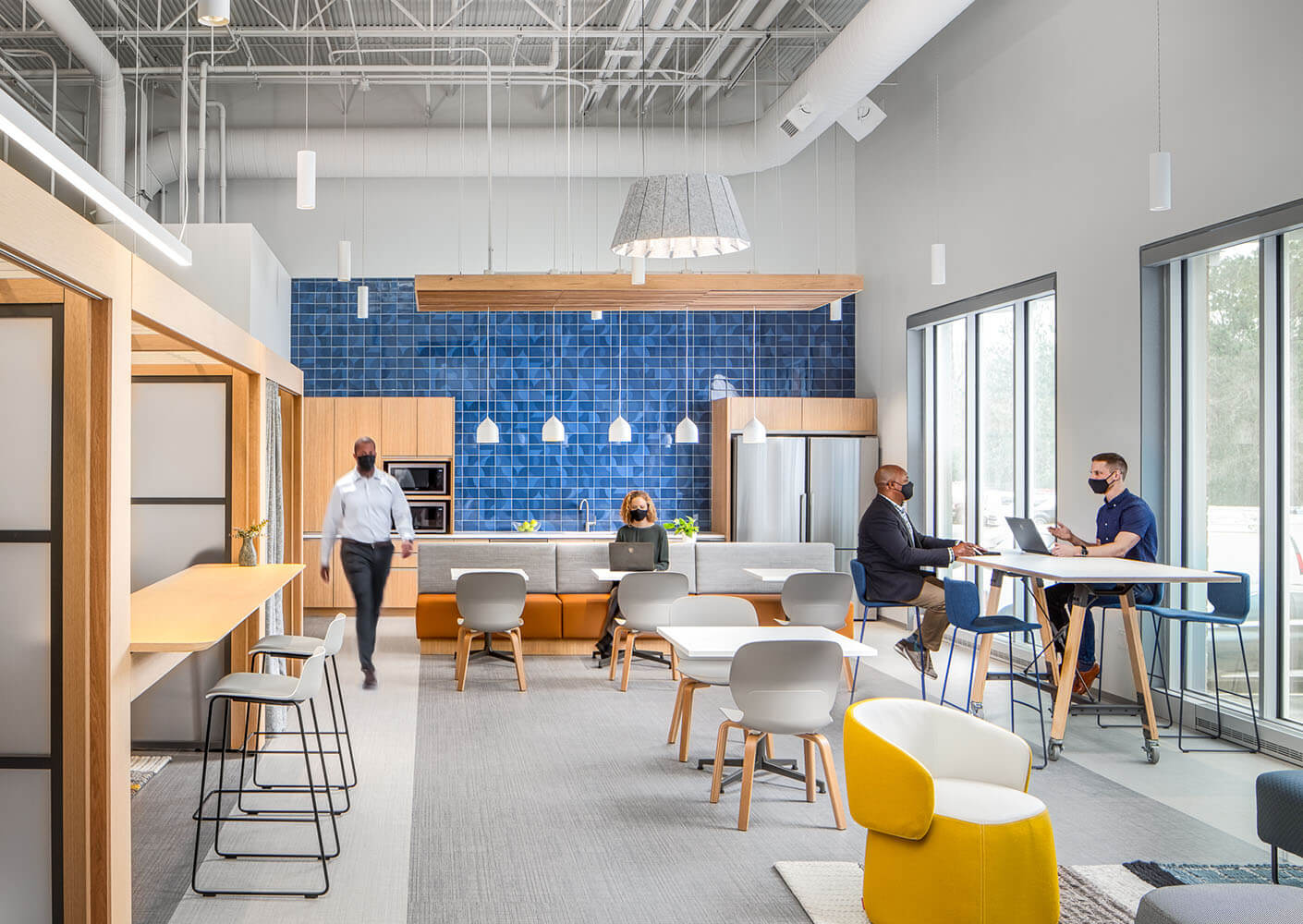Insights Gained.
Researching the future of education has been a passion at Perkins&Will for decades. And certainly, the past two-years have made the necessity of planning for unexpected impacts increasingly obvious. As we look forward and predict the future of education, the impact of the pandemic–and the associated lessons learned–several insights are becoming clear:
1. Myth Busting.
There was a common myth that online education is incompatible with face-to-face learning. Over the past 22-months, this myth–and its associated myth that online students “aren’t really here”–have both been soundly discredited. The reality is that hybrid education is here to stay and must be effectively incorporated into the future design of both indoor and outdoor learning environments.
2. Equity and Social Justice.
Today’s students arrive on campus expecting their educational experience to actualize their personal values regarding social purpose and to elevate the realities of equity, justice, and diversity. Our projects must create welcoming environments and eliminate real or perceived barriers to access. Seamless hybrid technologies will enable institutions to increase their outreach and connect with thousands of people historically beyond the reach of traditional higher education–many of whom are in economically and socially marginalized communities.
3. Preparing for change.
Flexibility and adaptability have never been more important than they are now. Moving forward, designing flexibility into education buildings that will then serve as facile frameworks for unforeseen future technological or pedagogical developments will be critical to the long-term success of academic institutions. Consider the impact that today’s incoming freshman (who finished high school online) and returning sophomores (who have never actually been to campus), who are arriving on campus with unprecedented needs and expectations, have on faculty, staff, and facilities. Not only were they weaned on the search access of Google, the immediate delivery of Amazon, and the service ambience of Starbucks, but because their last 18 months of education have been entirely online, they potentially lack the social and collaboration skills fundamental to succeed in college. New learning spaces must accommodate a level of adaptation required to meet these and still other yet to be determined requirements.
